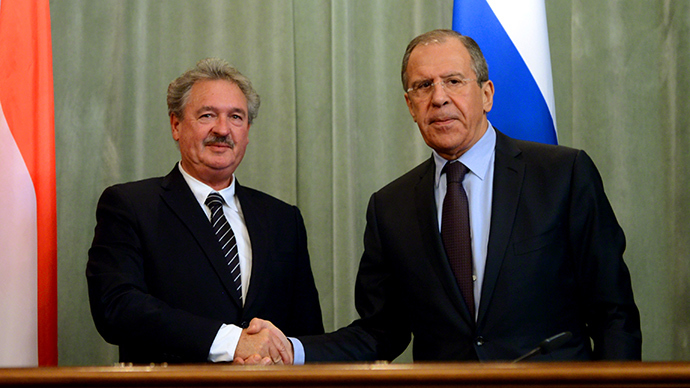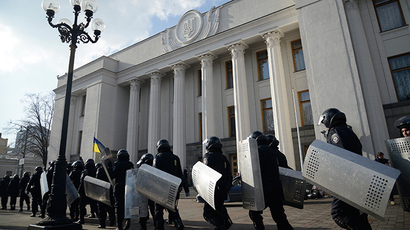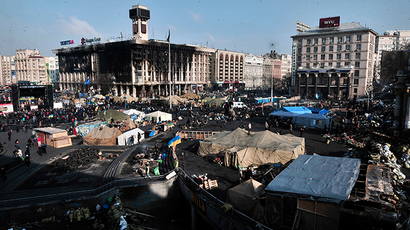Voiding Ukraine’s minority languages law ‘wrong’ – Luxembourg FM

The decision of the new Ukrainian authorities to repeal a law giving regional rights to minority languages is a bad move, said Luxembourg Foreign Minister Jean Asselborn. He also criticized a bill which would ban Russian media in Ukraine.
“Languages used by the people must be respected. And I totally agree with those who say that if a law limiting the use of languages is accepted it's wrong,” he told a media conference in Moscow following a meeting with his Russian counterpart Sergey Lavrov
The now-repealed language law, which was adopted in Ukraine in 2012, gave legal grounds for local government to conduct business in the languages of local minorities. This mostly affected the Russian-speaking minority, which is concentrated in the east and south of the country, but also affected Romanian and Hungarian-speaking minorities in the south-west.
Repealing the law was one of the first actions of the Ukrainian parliament, after the opposition took control over it in the wake of ousting President Viktor Yanukovich. Oleg Tyagnibok, the leader of the nationalist Svoboda Party, said as he was advocating the cancelation that the law was adopted with violations and promised that it would eventually be replaced with a new one.
Asselborn’s words confirm the assessment of Lavrov on the issue, who said, “We voiced our concern. I am worried that the EU has a similar concern – they can have none of it.”
The two diplomats also agreed in their attitude towards a bill currently floating in the Ukrainian parliament, which would effectively ban all Russian media in the country. Authors of the bill, who are members of Svoboda, justified the move by what they called biased and untruthful coverage of the Ukrainian protest.
The bill would ban all media from countries which have not ratified the European Convention on Transfrontier Television, from broadcasting in Ukraine. Russia signed the convention, but has not ratified it so far.
“Russia is not a party to the convention, but it does not prevent us from broadcasting all across Europe. No EU member makes any problems for our broadcasts. If such a decision is taken in Ukraine, it would be a serious violation of the freedom of speech,” Lavrov said.
Asselborn agreed that the freedom of media is a key component of the democratic values the European Union is advocating.

Earlier Russia voiced its concerns that the new authorities of Ukraine are influenced by radical nationalist forces, which used violence in confrontation with Yanukovich. The result is that dictatorial methods are used in Ukraine, the Russian Foreign Ministry said on Monday.
Moscow believes that this poses threat not only to Russia’s interest, but also to Russian-speaking Ukrainians, who currently fear that they may soon be victims of oppression.
Lavrov reiterated the position at the conference, saying that Russia wants to see the opposition stick with its obligation under an EU-brokered peace plan, which “was supposed to reconcile all Ukrainians, to ensure that not a single Ukrainian in any part of the country felt his rights violated.”
“We want to hear an answer to this question, especially since the radicals are threatening an offensive on those regions of the country, which voice disagreement with their methods,” he added.
The pro-Russian regions of Ukraine have already voiced their mistrust with the new authorities in Kiev. In Sevastopol, a large city in the Crimean autonomous region, tens of thousands of people held a rally and elected a new mayor. The Yanukovich-era government of the city meanwhile made a public statement, which confirmed its loyalty to Kiev, but was pressured by the crowds to retract it and to relinquish its power in his favor the freshly-elected representatives.
The looming separatist trend is to be discussed on Tuesday by the parliament-appointed acting President Aleskandr Turchinov and members of security agencies, which are currently undergoing a massive overhaul.














